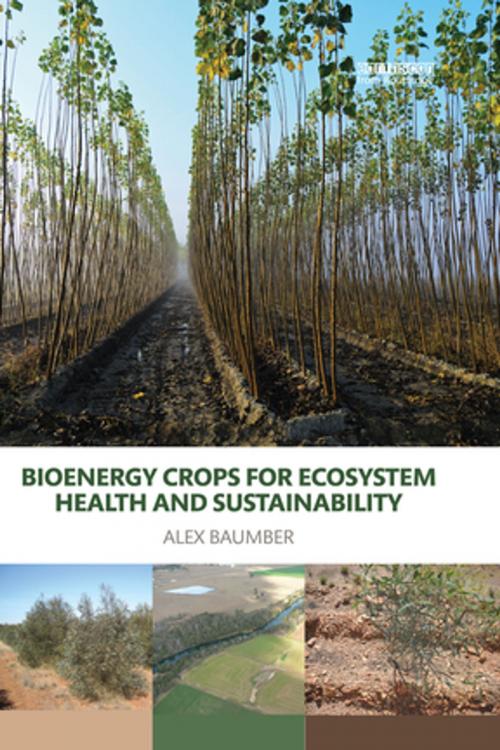Bioenergy Crops for Ecosystem Health and Sustainability
Nonfiction, Science & Nature, Technology, Agriculture & Animal Husbandry| Author: | Alex Baumber | ISBN: | 9781317559009 |
| Publisher: | Taylor and Francis | Publication: | February 22, 2016 |
| Imprint: | Routledge | Language: | English |
| Author: | Alex Baumber |
| ISBN: | 9781317559009 |
| Publisher: | Taylor and Francis |
| Publication: | February 22, 2016 |
| Imprint: | Routledge |
| Language: | English |
The growing of crops for bioenergy has been subject to much recent criticism, as taking away land which could be used for food production or biodiversity conservation. This book challenges some commonly-held ideas about biofuels, bioenergy and energy cropping, particularly that energy crops pose an inherent threat to ecosystems, which must be mitigated.
The book recognises that certain energy crops (e.g. oil palm for biodiesel) have generated sustainability concerns, but also asks the question "is there a better way?" of using energy crops to strategically enhance ecosystem functions. It draws on numerous case studies, including where energy crops have had negative outcomes as well as well as cases where energy crops have produced benefits for ecosystem health, such as soil and water protection from the cropping of willow and poplar in Europe and the use of mallee eucalypts to fight salinity in Western Australia. While exploring this central argument, the volume also provides a systematic overview of the socio-economic sustainability issues surrounding bioenergy.
The growing of crops for bioenergy has been subject to much recent criticism, as taking away land which could be used for food production or biodiversity conservation. This book challenges some commonly-held ideas about biofuels, bioenergy and energy cropping, particularly that energy crops pose an inherent threat to ecosystems, which must be mitigated.
The book recognises that certain energy crops (e.g. oil palm for biodiesel) have generated sustainability concerns, but also asks the question "is there a better way?" of using energy crops to strategically enhance ecosystem functions. It draws on numerous case studies, including where energy crops have had negative outcomes as well as well as cases where energy crops have produced benefits for ecosystem health, such as soil and water protection from the cropping of willow and poplar in Europe and the use of mallee eucalypts to fight salinity in Western Australia. While exploring this central argument, the volume also provides a systematic overview of the socio-economic sustainability issues surrounding bioenergy.















